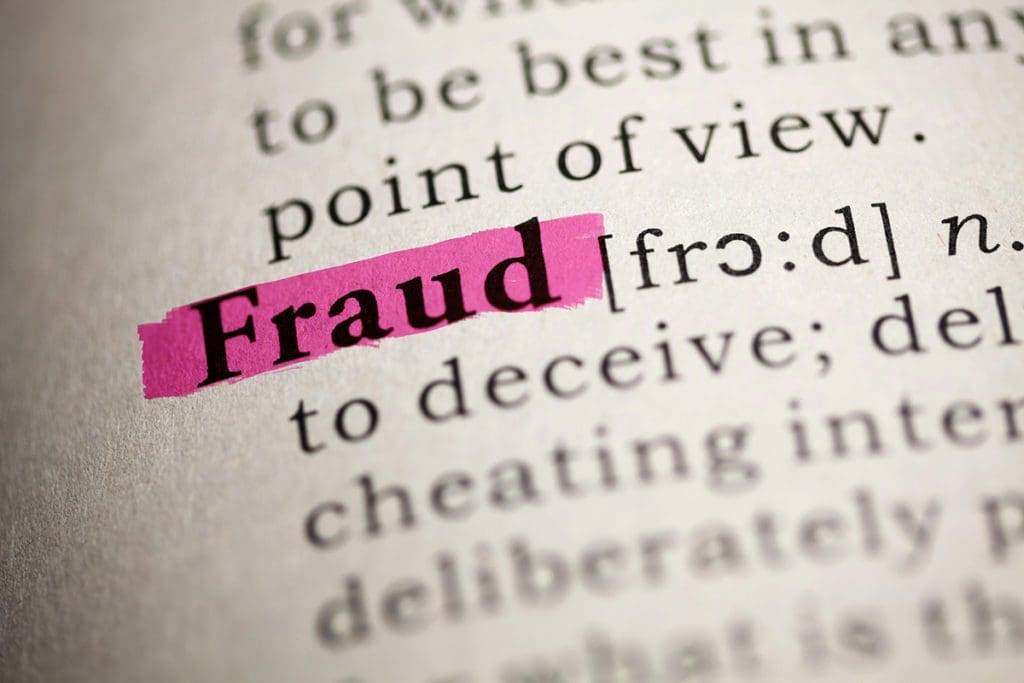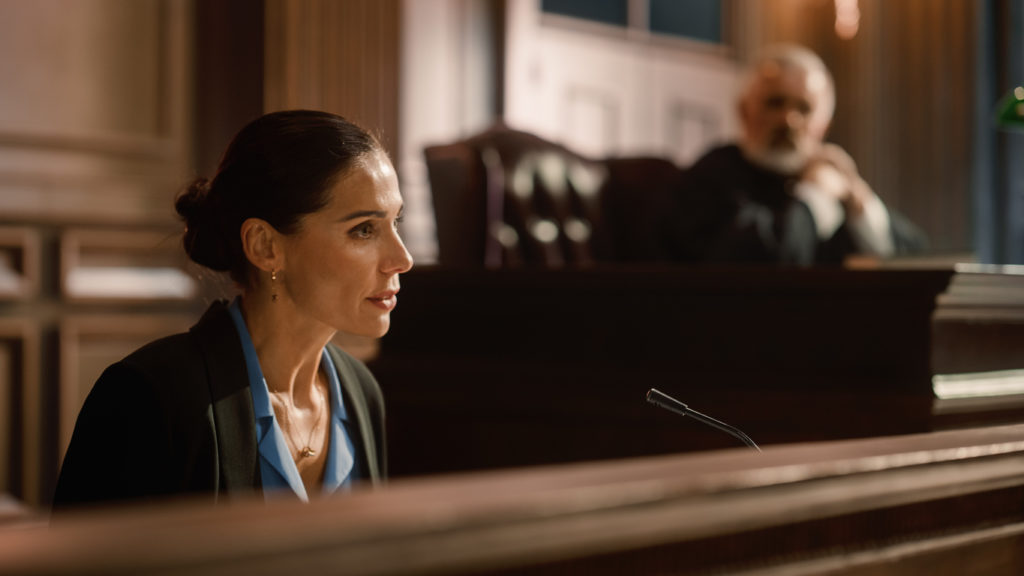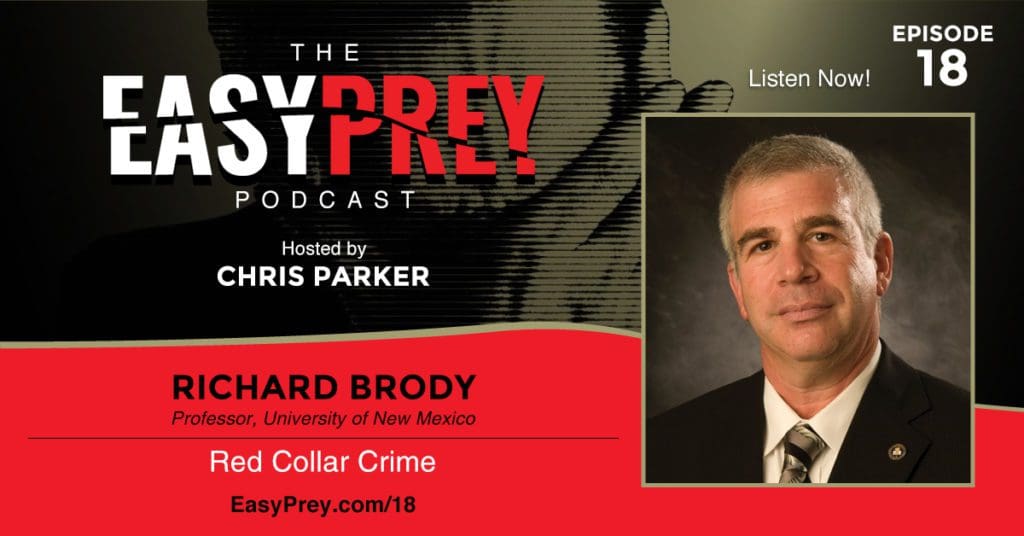
Accounting doesn’t sound like a sexy career choice. How about forensic accounting and getting to work with the FBI and Secret Service? Now that’s getting interesting. White-collar crime is typically committed by business or government professionals that engage in fraud, insider trader, embezzlement, or cybercrime. It can destroy companies, individuals, and families. What happens when a murder occurs during these cases?
Richard Brody is a professor and chair of the accounting department at the Anderson School of Management at the University of New Mexico. He is a certified fraud examiner, certified public accountant, and a forensic certified public accountant. He serves as an expert witness and has experience in both civil and criminal cases. He has worked with the U.S. Secret Service, the U.S. Department of Justice, and the New Mexico Attorney General’s office.
Rich shares many experiences working in white-collar and red-collar crime. We also discuss ways to help you be more knowledgeable because education is the only solution.
“When one avenue of fraud gets shut down, they just find another one.” - Rich Brody Share on XShow Notes:
 [01:14] – Rich shares the background on how he got started in white-collar crime.
[01:14] – Rich shares the background on how he got started in white-collar crime. - [03:14] – He is very proud that he has been able to go out and speak to so many people about white-collar crime.
- [03:57] – Trust no one until you can verify. Use the same standard for interacting online as you do in person.
- [05:02] – White-collar crime includes occupational fraud, embezzlement, and more on the business side and scam artist, identity theft, and romance fraud on the individual side.
- [05:59] – It’s not a small number of people that are doing this and it is a huge number of people that have been victimized.
- [06:11] – It is highly profitable and fairly low risk.
- [09:07] – Most people proceed by accepting it as an expensive lesson.
- [10:12] – Filing a police report is an easy thing for a business to do.
- [10:31] – In the area of identity theft, filing a police report will then give you the ability to get free services from the credit reporting agencies.
- [12:10] – One of Rich’s goals is educating people. It is all about prevention.
- [13:38] – Without trust, you don’t have fraud.
- [14:37] – White-collar crime is something that is considered to be a violation of trust, but it doesn’t involve any violence.
- [16:19] – A red-collar criminal is a person who commits a violent and brutal act on a person when they expect that this person can expose their criminal behavior.
- [19:01] – There are many cases where you have the sudden death of a crucial witness in a case. Just because it seems like a suicide, it might not be.
- [19:56] – Sometimes the violent act can actually be against yourself.
- [20:48] – Anytime you have a white-collar crime, the person who is involved in that crime is a potential suicide candidate based on the embarrassment.
- [22:41] – Now scammers are going on social media, collecting personal information, and using that to convince them the scam is a legitimate situation.
- [23:21] – What is even scarier about the red-collar area is that the victim doesn’t have to be someone who profited from the situation or is involved in any way.
- [24:53] – There is a misconception that white-collar criminals are not like violent criminals.
- [26:13] – Anybody can become a victim of white-collar crime.
- [26:28] – In the original case that motivated the term itself, the victim knew that something was going on.
- [27:43] – Many red-collar criminals are psychopaths.
- [28:06] – The fraud triangle has the three common elements of fraud.
- [30:01] – Red-collar criminals view killing someone as just as viable as a solution as any other solution.
- [30:51] – We have to deal with the white-collar aspect to prevent the red-collar aspect.
- [33:15] – Rich views this as a service to try to educate people. Education is the only solution to these problems.
Thanks for joining us on Easy Prey. Be sure to subscribe to our podcast on iTunes and leave a nice review.
“Anybody can become a victim of white-collar crime.” - Rich Brody Share on XLinks and Resources:
- Podcast Web Page
- Facebook Page
- whatismyipaddress.com
- Easy Prey on Instagram
- Easy Prey on Twitter
- Easy Prey on LinkedIn
- Easy Prey on YouTube
- Easy Prey on Pinterest
- Have I Been Pwned
- Rich on LinkedIn
- Rich – Fraud Triangle
Can you give me a little bit of background of where you come from and how you got interested in white-collar crime and beyond?
Sure. I started my career working for one of the big eight accounting firms. We're now down to only four. I was very fortunate when I worked for Deloitte Haskins and Sells back in the early 80s to get placed on a very large fraud engagement. A very high profile was one of the first savings and loan scandals.

I did a couple of years in public accounting, went back and got a master's degree, then went into private industry. Eventually, I went back and got my PhD. As a full-time academic, you're always looking for interesting topics to write about and interesting topics to teach your students. Fraud was really just emerging in the academic world. I jumped on that train at the very, very beginning of it. Everything took off from there.
As soon as I began teaching in the area, got certified in the area, and my name was in the directory of certified fraud examiners, I started getting calls to support attorneys in their litigation. Held off on doing much of that for a while, but probably about 12–13 years ago or so I started taking some cases and just got fascinated by the area. Started writing about it more and incorporating what I was learning in the practice world into my classes. It all just took off from there and very, very glad that I got on board that train early.
It's just fascinating material to me, so stuck with it. The students love it. People love it when you present it to them. Very practical information. Makes you pretty cynical about the world, but it's something I'm really proud of in my career that I've been able to go out and speak to so many people about it.
That's great. I can definitely relate to feeling cynical about things. I always tell people to always be suspicious of anyone that you're interacting with online because you just don't know if they're real or not.
I take it even further—not only online, face-to-face too. Sure, there are people who are down on their luck. They walk up to you at a gas pump and ask for money so they can put a couple of bucks in their car, buy some food. It's hard to know if they're telling you the truth or not, but from my perspective and teaching people, it's trust no one until you can verify. Unfortunately, it's not easy to verify.
You hold the same standards for online interactions. I try to tell people it's really no different in person. It's sometimes harder for the fraudster because they're actually seeing the person that they're trying to take advantage of.
You almost think, in some ways, it definitely would be harder for them, but it's almost as easy because this person is physically here in front of me. I know they're a real person.
Absolutely. It's unfortunate that it's got to the point now where many people have just decided, instead of having an honest job and making an honest living, I can defraud somebody because the downside, even if you get caught, really isn't that far down, so we're not really discouraging people from engaging in fraudulent transactions with others.
What things are covered under white-collar crime and fraud?
A lot of it would be occupational fraud, embezzlement from companies. You have the business and corporate side of it, and then you have the personal side of it. From a business perspective, you've got fraud committed against an organization, which is when you physically take assets, but you also have fraud on behalf of an organization. This would be all the cooking the books, financial statement fraud where the perpetrator of those crimes doesn't always benefit directly.

It all transfers over into the individual world: the non-business world with scam artists, things like identity theft and romance fraud, frauds with charities, and all those types of things. Almost anything these days is susceptible to fraud. Again, this all ties into that cynical nature because it's not a small number of people that are doing this, and it's a huge number of people who have been victimized.
And I assume for those that are perpetrating, it's highly profitable.
Highly profitable, and I hate to say it, but it's fairly low-risk. You just don't see if somebody is an identity thief and they get caught, the likelihood of them going to jail is probably close to zero. I know where I live, the law enforcement folks are already thin. They're taxed to the max, as are the district attorneys, so these are the types of cases. They really just want them to go away, so people are immediately put on probation. It's not that easy to catch these people. If they get away with it, they'll continue and if they don't get away with it, they're probably calculating the odds of getting caught again, and they're pretty low.
I often hear that it's really treated more like a civil crime in terms of the police. We don't want to get involved. If this person stole money from you, take them to court, sue them, and try to get it back.
Absolutely. Unfortunately, most people who commit fraud aren't putting their money in a bank account. The likelihood of getting anything back is very low. Even when the court determines that we're going to put you on a payment plan and you're going to pay this victim $10 a week for the rest of your life. There's not a lot of control when the person doesn't make those payments.
Unfortunately, most of it is put back on the victim, and most of the victims I deal with just prefer to move on with their life. There's embarrassment involved when you're a victim. The same holds true for a company. When a company catches someone embezzling or committing any type of fraud, they can prosecute them criminally and civilly, but they don't want the bad publicity. They don't want to have to spend the time, the money. It's not just the legal fees. It's the time that the executives end up dealing with investigators, dealing with law enforcement. There are some really good attorneys out there who find ways to keep their clients out of a lot of trouble.
A number of years ago, I was approached by someone who I thought was a legitimate advertiser. It turned out this guy had forged a bunch of documents, and we ended up getting into an advertising relationship. He was advertising on my site and I was supposed to get paid in exchange for that. It turned out that obviously he wasn't the real guy, and I lost a number of thousands of dollars in ad revenue. My initial response was, “Well, I'm going to get a lawyer. I'm going to go after this guy. I'm going to make this guy's life absolutely miserable.” Luckily, I thought better of it later. I was like, “I don't want to spend my time and energy going after this person. I just need to take this as an expensive lesson.”
That is how most people proceed. One of the things that we talk about, at least from the corporate perspective is, and maybe it's more of a question. Does a corporation or a business have a moral obligation to prosecute? Because if someone steals from my company and I let them go, I just terminate them, they're going to probably go and do it again at another company.

We don't really have the time to talk about all the weaknesses associated with background investigations, but they are generally very ineffective. One of the reasons for that is so many people are not prosecuted. They are free to go on and do the same thing elsewhere. I've seen cases locally where that same person has done it to multiple businesses, and each business that's victimized says the same thing. I don't have time to deal with this.
What would you recommend to a business in that position? File a police report and leave it, or actually spend time and energy chasing it down?
Definitely filing a police report is one of the easier things to do. There shouldn't really be any expectation that anybody is going to do anything about it, but it may help if you have an insurance claim that you can make, you've got to have a police report. In the area of identity theft, filing a police report will then give you the ability to get free services from the credit reporting agencies.
But again, the really sad part is that people expect that they're going to get help. Just like our local FBI office, they've got walk-ups every day. “I sent this money to this Nigerian prince and I haven't got my $50 million. Can you help me get my $5000 back?” It's just not going to happen.
That's one of the reasons why I started the podcast is because so many of these people approach me due to whatismyipaddress.com of either being a victim of a fraud or being a victim of a relationship, romance scam. They're like, “Can you help me get my money back?” My general response has been, “How much money do you want to spend trying to get that money back? Because you're probably not going to get it back unless you have super, super deep pockets.” In that case, it's probably not that much money in comparison to what you have.
And so many of these criminals, we don't even know where they are. They could be in Eastern Europe. No one's going to spend the resources to go and track these people down. With all the free services out there now to have a VPN connection, they're never going to find these people. Honestly, it's really not worth it. You feel bad for the victim.
I try really hard to teach people all about personal responsibility, but sometimes they just don't have the background to know that they're being scammed. One of my real goals these days is education. Your podcast has been covering a lot of really significant areas, and people need to listen because they're not going to get help after the fact. It's all about prevention. The same is true for businesses. I'll go to businesses and say, “You really need to have a fraud prevention program.” And the response is often, “We don't really have fraud here.” My response is, “Then you have twice as much fraud, like every other organization.”
Because you don't know about it.
Right. Everybody has it. It doesn't matter what type of organization you work at. We look at things like the National Labs, which are both in New Mexico where I live. You would think these organizations are doing the full-fledged, full press background checks on everyone they hire, but we still have espionage, and that is a type of fraud. We still have little ditty P card frauds from their employees.
When you've done the full vetting of these people, yet you still have fraud, it's a very clear indication that it can happen anywhere. A lot of people are in denial. You talk to a family business. “I don't have to worry because everyone who works here is family.”
That's even worse.
It's worse. Without trust, you don't have fraud. These organizations, nonprofits, where they're just so happy to have volunteers who are willing to help them, that's a pretty good gig for a fraudster to just go city to city or state to state and get yourself ingratiated in one of these nonprofits, take advantage of it, and leave. You know they don't have the resources to go after the person. Again, this is all the cynicism that comes in, but I try to tell people, “Yes, I may be cynical, but I'm also very realistic and practical.”
That's fortunate and unfortunate at the same time.
Right.
You had coined the phrase, “red-collar crime.” Can you tell me what that is?
I was about to say the only good news here is sometimes the only thing you have to worry about is that you had some financial losses. That's how we refer to white-collar crime. White-collar crime is something that is considered to be a violation of trust, but it doesn't involve any type of violence. Red-collar crime, I want to give credit where credit is due. Frank Perry is a public defender in Winnebago County in Illinois, and he actually coined the phrase around 2005.
Just telling you how this came about will give you some really good background on this. Frank had a client who was accused of murdering his business partner. This is back in 2004. A very violent, ugly bludgeoning with a hammer experience. Frank is visiting his client in prison trying to figure out what was the motive for this crime. It took a while for the guy to finally tell him that his business partner, the victim (in this case) knew that he was embezzling from their company.
In an attempt to silence this person and prevent them from telling anyone about this fraud that he committed, he decided to murder her, which he did. Out of that case, Frank came up with this term, red-collar crime. I read an article that Frank wrote after this case and thought it was the most fascinating thing I had ever seen in my life. He and I have been working together since then writing articles, expanding our definitions, and trying to educate people about this.
In a nutshell, a red-collar criminal is a person who commits a violent and brutal act on a person when they suspect that this person can expose their criminal behavior. The perception of discovery is what motivates this violent behavior.
That reminds me of a case here in Southern California where there was a family that disappeared—The McStay family. I think it was around 2010, some family members as well. They just disappeared. Police went over there. There was food sitting on the counter like they had just had a meal and the family was just gone. I think they found their car down in San Diego near the border. For years, this family just disappeared. A number of years later, they found the family's bodies buried out in the desert and eventually worked back to charging this guy's business partner with their murders.
I guarantee you that anyone who is listening to this podcast is going to start thinking, “Now wait a minute. I remember reading about a case. There was a news story that went unsolved.” I argue that a lot of these unsolved cases, including many that are sitting in law enforcement agencies around the world, are related to the red-collar crime area. This is not rare. There are so many cases where we know it's a red-collar crime, but there are surely even more cases where we're not sure. This would also include cases where it's determined that there was a suicide. Maybe it wasn't a suicide.
 In the Enron case, if we think back to those Enron days, the day before Cliff Baxter—who was one of the Enron executives and one of the insiders who really knew what was going on at Enron—the night before he was supposed to testify before Congress, he was found dead in his vehicle due to an apparent suicide. I say apparent and I've written about this with Frank Perry. There's a lot of information that's very inconsistent with it being a suicide. Even though that is a high-profile example, there are many others where you have the sudden death of a crucial witness in a case. It's very unclear. Why would this person kill themselves?
In the Enron case, if we think back to those Enron days, the day before Cliff Baxter—who was one of the Enron executives and one of the insiders who really knew what was going on at Enron—the night before he was supposed to testify before Congress, he was found dead in his vehicle due to an apparent suicide. I say apparent and I've written about this with Frank Perry. There's a lot of information that's very inconsistent with it being a suicide. Even though that is a high-profile example, there are many others where you have the sudden death of a crucial witness in a case. It's very unclear. Why would this person kill themselves?
There are a lot of warning signs that are generally apparent in suicide cases. One of the things that I talk about a lot with law enforcement is just because it seems like a suicide, it might not be, and if you corrupt that crime scene, we'll never know. I think the Cliff Baxter case is one of the best examples where a lot of the evidence, things like the position of the gun and forensic evidence, really suggested it may not have been a suicide.
This is one of the slight expansions to the red-collar crime definition, where we talk about the fact that sometimes the violent act can actually be against yourself. Just as we saw with one of Bernie Madoff's sons who hanged himself while his infant child was in the next room. I'm not making any statement on whether I think his son knew what was going on with the whole Ponzi scheme, but it was clear that he was distraught.
He couldn't walk anywhere without people giving him dirty looks and things like that. Sometimes the victims in these cases are innocent parties, if you will. That's just one example. There are many others. We even see cases where people get scammed and the embarrassment of getting scammed. Their unfortunate reaction to this is to take their own life. I would argue that anytime you have a white-collar crime, the person who's involved in that white-collar crime case is a potential suicide candidate.
I've definitely heard back to the foundational days of the Nigerian prince scams. They originated a lot with faxes being sent to CFOs and the accountants at companies. The accountants looked at it as an opportunity to make money for the company. They turn out to be scammed. They do all sorts of stuff to try to recover the money…gambling. Often they get into deeper debt and that often (unfortunately) resulted in suicide just due to the embarrassment.
Absolutely. In fact, you're describing—minus the suicide piece—the movie The Informant! way back with Matt Damon. That's exactly what happened. One of the top executives got caught up in one of these Nigerian scams. One way that he decided to be able to recover some of his losses was to start embezzling from his own organization.
It's a fascinating case. The movie is great, but the book is even better. You're right. In the old days, you and I may remember what a fax machine is. I just published the paper on 419 Nigerian scams, and one of my co-authors is from Nigeria and knew someone who actually does this for a living, so we were able to interview him and get a lot more information about how far they've come where they actually target individuals now.
It's no more random, sending out 1000 emails. It's going on social media, collecting personal information from somebody's Facebook page, and using that to convince them that this is a legitimate situation. Just as white-collar criminals have developed or evolved from the old days. It's just eye-opening to see how things have changed. When one avenue of committing fraud gets shut down, they just find another one.
Unfortunately, it usually becomes more sophisticated, not less.
Absolutely. Just to return to this red-collar area. What's really scary about the red-collar area, is that the victim does not have to be someone who profited from the situation and actually doesn't even need to be somebody who was involved in any way, shape, or form. If I embezzle from my employer, and it starts to eat me up inside, what I did, I call my friend Chris and I say, “Chris, you're not going to believe it. I did something really stupid. I embezzled from my employer and I feel horrible about it. I had to get it off my chest and I feel much better now that I told you.”
Six months down the road—this is based on a legitimate case—I start going a little crazy inside and I think, “Why did I tell Chris what I did? He's going to turn me in,” so I kill you. The police show up. There's really no connection between you and the fraud other than the fact they may find out in their investigation that you and I are friends. There's not going to be a lot of evidence because the gain predated the murder.
And was not even associated with the murder.
Not even associated. Society isn't helping with this because what we find in a lot of our research—not just ours but criminologists and sociologists—there's a real misconception that white-collar criminals are not like violent criminals. Society tends to view white-collar criminals unlike other criminals because they will generally say this was a moral lax by the individual. This is a really good person who just happened to commit this white-collar crime. When the white-collar criminal then becomes a red-collar criminal, it's even more unbelievable to people that someone could do something like this. Is it really possible for someone who wears a suit and tie to murder someone else?
The perception is that, initially, it was not a violent crime, so how could they be a violent person, or how could it be a bad thing?
Right, and this is a very effective technique that defense attorneys use if these cases make it to a jury trial. The jury is looking at the suspect and basically saying there's no way he or she could do this because he or she looks just like us.
That's the scary aspect of it. Are there things that we do that put us at risk of becoming a victim of a red-collar crime?
That's a really good question, and the answer is terrifying in that anybody can become a victim. In some cases, like the original case that motivated the term itself, the victim knew that something was going on. In fact, the eventual person who was convicted of murdering her had attempted to kill her before. The victim lent the convicted person her car. When she got the car back and went out to drive her car, the brakes didn't work.
She found weird substances in her coffee, so she actually told people, “I think he's trying to kill me.” In the other scenario where I tell a friend what I did, my friend isn't going to be worried that I would actually come and commit a violent act against him. There's no easy answer to that question, and that's disturbing.
That's the worst-case scenario when anyone has the possibility of being a victim and we don't really have the means to protect ourselves from it.
Absolutely. The only thing you can do is as soon as somebody wants to tell you something bad, “Don't tell me,” because who knows where this is going to go. Think about this from the perspective of the red-collar criminal; some of the things that might be helpful. Red-collar criminals are psychopaths. If you can identify someone as a psychopath, that is more helpful. But in the business world, when we talk about white-collar criminals, we will always make reference to the fraud triangle.
The fraud triangle has three common elements to a fraud. If the question were how can an organization identify a white-collar criminal, we talked about which individuals have pressure in their lives? Do you have someone who has financial problems? Do you have someone who has an addiction? Along with that, does this individual have an opportunity? Do we have weak internal controls? Are they able to put pressure on others? Do they have power over others to get them to do things that they shouldn't do?
The last element of that triangle is rationalization. The person committing these white-collar crimes is able to say, I'm not really stealing from the company. I'm going to pay it back or they underpay me so I'm really just taking what I am owed. What we have done is we have taken this fraud triangle, which many people talk about. I'll say the improvements that people have made. Now we have the fraud diamond. We have the fraud quadrilateral. We have the fraud hexagon. Many people are tweaking it.
What we've done in the red-collar area is we've come up with the fraud, concealment homicide triangle, which has those same three elements. The pressure here, though, is very, very intense. As a person says, “Do I want to go to jail? I will be on the front page of the newspaper. My family will suffer. My social status will be gone.” The opportunity doesn't even have to be that great. I can easily find a way to get this person alone, whoever it may be.
There's almost no rationalization other than, “I don't want to ruin my life, and so I'm going to do this,” so these red-collar criminals killing someone is just as viable a solution as any other solution that may exist.
It's the only apparent solution.
Right. I would encourage people who think, “Oh, you're taking this minor little concept that is probably so rare.” I think in our articles, we've documented—I have more than one file of either actual red-collar crime cases or potential red-collar crime cases, and that number is probably in the hundreds.
That's scary. It's almost as if you really have to deal with the white-collar aspect to prevent the red-collar aspect.
That's true. I have to chuckle a little bit. Probably the weirdest thing I've seen in all the years that I've been doing this research. It's not related to one of my cases, but I was on LinkedIn and I saw this posting from an attorney, and basically the attorney is saying (if I sum it up very briefly), “Are you accused of a red-collar crime? I specialize in representing red-collar criminals.” I thought, “Oh, my gosh. Somebody has taken this horrible thing and is using it as a way to profit to increase their client base.” It just blew me away.
And advertising that on LinkedIn.
Yeah, free advertising.
That is crazy. If people want to learn more about you and red-collar crime, are there resources that you have, or can people follow you somewhere?
I'm pretty active on LinkedIn. If you Google my name, Rich Brody, I'm not the New York Times movie critic, but if you put fraud after my name, you can find most of my articles and speeches. I speak pro bono only. I don't take payment for any speeches that I give. Right now it's a little bit of a difficult time to be traveling, but once things return to more normalcy, federal agencies, state agencies, nonprofit agencies, I am always happy to receive requests. I fill them as I can to come and speak in person to organizations just to promote the education related to fraud. Part of that education is to educate people about red-collar criminals.
Great. It's amazing that you're able to do that without the typical massive speaker fees.
If they want to give me a massive fee, I guess I wouldn't turn it down. But no, I'm very fortunate. I love my job and being a full-time college professor with a side practice in the litigation support area has just been great for me. I just view this as a service to try to help educate people. I don't really see any other solutions to these problems other than education. Anytime I can reach a larger audience, it's one of those you tell two friends, and they tell two friends, and they tell two friends. I do get emails every so often from someone that saw a clip on YouTube, read an article, or heard a podcast and they want to tell me their story. I find that very rewarding.
I've had a few of those emails of, “Hey, I read your article about this, and it prevented me from becoming a victim of a romance scam.” To me, that makes all the work totally worth it when I hear that someone's saved their life savings because they read an article.
It is probably one of the most rewarding parts of my job. It's great to be in the classroom and teach your students, but getting out and talking to the people, spreading the knowledge, and encouraging them to do the same. Paying it forward, if you will, I think is our best bet to start minimizing the number of victims that we have.


Leave a Reply